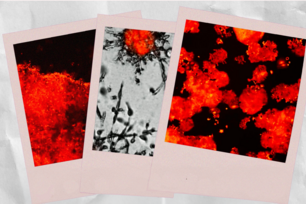Kipp Weiskopf
The Weiskopf lab studies how immune cells can be used to fight cancer in the body.
455 Main Street
Cambridge, MA 02142
United States
Achievements & Honors
Research Areas
Affiliations
Question
How does the immune system interact with cancer cells?
Approach
Cancer cells must evade the body’s immune system in order to survive and continue to multiply. In recent years, physicians and scientists have become increasingly interested in interfering with cancer cells’ ability to block the immune system while tapping the body’s own immunological defenses to fight the disease. Most current therapies focus on T cells. These specialized immune cells play an important role in the adaptive immune system that learns to recognize and kill pathogens and diseased tissue. Whitehead Fellow Kipp Weiskopf is looking at another group of immune cells — myeloid cells. Myeloid cells are one of the most important protections against infection and are part of the defense mechanisms that comprise the innate immune system. Although myeloid cells often contribute to the growth of tumors, they hold tremendous potential to attack cancer if given the right stimulus.
In order to dodge the innate immune system, many cancer cells heavily decorate their outer surfaces with a protein signal called CD47. When myeloid cells, including macrophages, encounter a CD47-covered cancer cell, another protein called the SIRP⍺ receptor, on the myeloid cells’ surface connect with the cancer cell’s CD47 signals and send a “don’t eat me” message to the myeloid cells, forcing the immune cells to stand down. By exploiting this mechanism that myeloid cells use to avoid attacking healthy tissues, the cancer cells can continue to grow and divide.
Weiskopf began studying the CD47/SIRP⍺ interaction as a graduate student and demonstrated that CD47-blocking therapies could unleash immune attack against cancer and enhance a number of existing therapies. He also showed they could be used to treat small cell lung cancer and might permit bone marrow transplantation without using chemotherapy or radiation. On the SIRP⍺ side of the interaction, Weiskopf has jammed this receptor with antibodies, which may ultimately increase myeloid cells’ ability to target cancer cells. Some of the therapies developed by Weiskopf are currently being tested in phase I clinical trials. The Weiskopf lab studies additional mechanisms that control myeloid cell activation in tumors to develop new treatments for cancer and other life-threatening diseases, such as COVID-19.
Bio
Weiskopf earned a B.A. in biology from Amherst College in 2007, an M.Phil. in genetics from the University of Cambridge in 2008, and then entered Stanford University School of Medicine, where he earned his M.D./Ph.D. in 2016. Weiskopf completed his residency in internal medicine in 2018, and began as a Whitehead Fellow in October 2019. He has a concurrent appointment as a physician at Dana-Farber Cancer Institute.


